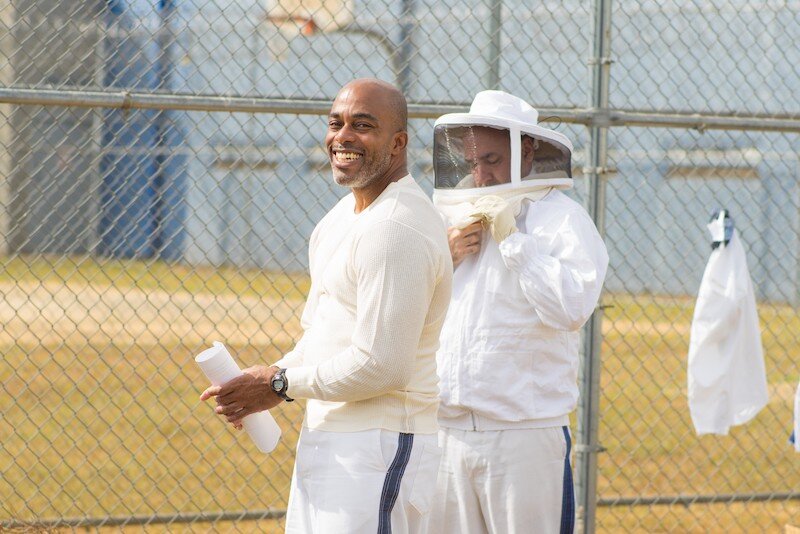Beekeeper Education & Seminars
I am privileged to speak to thousands of beekeepers every year for club seminars, beekeeper conferences and annual meetings. It is one of my favourite parts of the job and a critical component of keeping my research grounded in real beekeeping.
If you would like me to speak at your beekeeping club, seminar series, or meeting, please see my contact page to get in touch.
Please find below some details on specific beekeeper educations projects I work on, example talk titles delivered recently, and an example feature of my research on YouTube with commercial beekeeper Bob Binnie.
Examples of Lectures Recently Delivered at Major Meetings
Effective Methods Of Controlling Parasites in the Hive - TX 2021
Learning from Bees in Nature: Dancing, Drugs, and Diversity. - PA 2020
Bee Breeding: Problems and Promises of Darwinian Beekeeping. - SC 2020
Feeding the World without destroying it: What role for our bees? - GA 2019
Viruses, Varroa, Vectoring and Virulence: What makes bee parasites deadly? - EAS 2019
The first of many beekeeper seminars delivered! Young me (with hair, R.I.P.) presenting to beekeepers for the first time - Young Harris Beekeeping Institute, GA 2016
Example Feature: IPM and Varroa control with Bob Binnie.
For more features on Bob’s channel, check out these links:
Oxalic Acid Research Results: Part 1, Part 2
Apis mellifera mellifera and Isle of White Disease
Feeding Bees Sucrose Syrup vs HFCS
Master Beekeeper Program & Prison Beekeeping
Two prison beekeeping candidates get ready for the practical portion of their Certified Beekeeper exam - GA 2018
I have taught beekeeping theory, and specialisms in parasite and pathogen biology and treatment, since 2016 for our Georgia Master Beekeeper Program. I have acted as lead examiner for the certified level since 2017, and sit on the advisory and assessment board for the higher awarding levels. To progress through certification levels, beekeepers must gain community credits by educating others; as a consequence of this requirement, we partner with hundreds of local beekeepers to create networks of knowledge transfer and scientific outreach which place beekeepers at the heart of the science communication and public outreach engine, to great success. At the highest levels, beekeepers undertake original research equivalent to a masters thesis, and must sit and pass a panel viva (spoken exam) to be awarded the Mastercraft beekeeper level. Some of our beekeepers have subsequently published their work in scientific journals.
Beekeepers come from all walks of life and adapting our training to recognise their unique experiences and expertise is part of my job. This means giving beekeepers who may not be confident at reading and writing the platforms to showcase their knowledge, such as adapting written exams to be spoken oral examinations. As technology has changed, so too have opportunities for broadening access to training and talks through online classes, seminars, and video platforms.
Following the success of the master beekeeping program, we have expanded into maximum security prison education in partnership with the Georgia Beekeepers Association. With help from Georgia beekeepers, we run this service for prisons for free, allowing their inmates to train and sit the UGA college-level certified beekeeper exam, with exceptional success rates. I act as an examiner for this program, going into prisons to certify their beekeepers. You can read more about the goals and benefits of this program in the Red & Black Newspaper, or read some of our articles in Bee Culture magazine covering the profiles of those who started the program, an insight into how the program runs, and testimonials from the prison beekeepers themselves.

